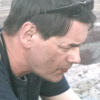
Posted
I am just struggling to reach the journey man level in HN2 ... but I'd like to know more about what Synfire can do that HN2 cannot.
Specifically, whether on a SMF import it can bring any more parameters than HN2, which as far as I understand is limited to Note Pitch, Note Duration, Velocity and Pan.
I do imagine the most useful 'moving' paramaters, namely CC1, CC71, CC74 and PtichBend, would be somewhat of a nightmare to interpret for prototyping ... if even possible. How would it be decided which note to bend, which direction, how far and for how long? CC1 would seem a little easier for emphasis at the end of a phrase.
Anyway, just wondering what exists and what may be implemented in the future.
If Synfire could intelligently interpret these parameters from a SMF for integration in a Sketch or Phrase (or whatever the terms in Synfire Pro), I'd immediately list my mother on eBay so I could afford it.
Prado
Sat, 2012-09-29 - 20:42 Permalink
I'd like to know more about what Synfire can do that HN2 cannot.
Depends on your musical style. If you want a straightforward beat with 3-4 additional instruments playing a couple loops, HN2 would be fine. For arranging many instruments and editing all phrases in detail, Synfire is lightyears better:
(http://www.cognitone.com/products/comparison/page.stml)
In general, importing CC data only makes sense if you use exactly the same sounds. Synfire imports all CC data that the user interface can present for editing, That is, if your specific sound understands CC#16 and the device/sound description knows about this (see: Custom CCs), it will be imported.
I'd immediately list my mother on eBay so I could afford it.
Check out the brand new Express edition, whether that would be an alternative for you to start with. It will be announced on Monday and is already listed on the site.
Sat, 2012-09-29 - 21:42 Permalink
Interesting a smaller version of Synfire Pro, but only 16 midi channels is not attractive..better is to have at least a 32 midi channel version.
So i do have my first doubt about this version...sorry
And how about the price from a HN2 update ?
Sat, 2012-09-29 - 22:30 Permalink
I too would like to know about upgrade paths from HN2 to Synfire Express ... and perhaps later from Express to Pro.
Since I am not interested in classical music composition, 16 voices sounds very good to me!
Reading the product comparison chart you linked, when you say: "Synfire imports all CC data that the user interface can present for editing," you are referring to what is listed under the "Phrase Split & Merge" features, correct?
And further that some of the listed items are MIDI parameters, e.g., "Bend" = Pitch Bend, "Modulation" = CC1, etc., correct?
(By the way, I think it would be helpful to also identify features by their proper GM standard parameter name for ease of understanding the feature comparison chart.)
So, to get to the 'nitty gritty,' in Synfire Express does this mean that if I import a sketch where there is a guitar lick with pitchbend on some of the notes, Synfire Express will create a phrase for a guitar which also intelligently uses pitchbend later from a phrase I import to the library?
Also, is Synfire Express both a Rewire host and slave?
I am grateful I won't have to list my mother on eBay, but I do wonder how much I could get on auction for an annoying cousin?
Thanks,
Prado
Sat, 2012-09-29 - 23:54 Permalink
Daw drones are VSTi instruments in your DAW what can be used by Synfire
Synfire prefers internal Vsti other than external Vsti ( drone )
Inheritance has to do with a (root)container from whereout you take a snapshot for a new container
Correct me if i am wrong..
------------------------------------
Yes lately i am interested in classical music composing and working with keyswitches in combination with halion 4 would be fantastic
The synfire express edition does not offer enough midi channels and keyswitching, so what to do?
Sun, 2012-09-30 - 00:27 Permalink
Thanks, Janamdo.
I think I get drones ... went and watched the video. I think they should have been called 'clones,' as that seems to more accurately describe their function.
'Inheritance' still eludes me, as I don't know what "(root) containers" or "containers" are. I'd like to understand their function in common sensical terms.
On another note. Synfire appears to make great efforts to integrate with a DAW and provide some DAW like functions such as AU/ VSTi hosting. But I wonder: for what? It will never include audio unless it becomes a DAW. Why would I want to complicate so many things when I could just create a great arrangement with GM sounds, export the MIDI and then go to work with my other instruments and midi effects in Cubase?
It seems that in the end the only convenience is bypassing the export/ import midi file part of the process. For me, Cubase is complicated enough without having to go through all types of device creation in order to simply have Synfire integrated.
Is it 'different strokes for different folks,' or is there something I am totally overlooking. Again, I'm referring only to the DAW integration aspects, not the basic protyping functionalities.
Prado
Sun, 2012-09-30 - 01:03 Permalink
Hello Prado,
You want to know how it exactly works..you are right
Well, drones are for playing your composition in your DAW after you have arranged it in Synfire pro with internal Vsti.
I thougt there is a feature in Synfire pro what export the internal Vsti to the DAW
The arrangement will be finished in your DAW.
The rootcontainer is the place where your imported midi in Synfire pro showing up after processing(recognition) by Synfire pro
A container is like a part in a sequenzer, but the construction differs from a traditional DAW
A Arrangement in Synfire pro revolves about building up containers
Sun, 2012-09-30 - 02:47 Permalink
Prado,
I also use Cubase and just bought Synfire. It is a lot of fun, but does take a while to learn.
The pricing for updates is on the cogitone website and there is not really a penalty to buy one product and upgrade later.
Drones are a really nice feature. They take almost no effort to set up in Cubase. The big advantage is that the sound goes directly to Cubase so you can use Cubase's mixer and also use Cubase to apply effects to your sounds easily (like a guitar amp, or reverb, etc).
If you want to learn more before you buy it, you should watch all the tutorial videos and try the demo. Then read the manual many times! :)
As for containers, there are a lot of things I still do not know, but even with what little I have learned, I can already make interesting tracks!
Ken
Sun, 2012-09-30 - 07:47 Permalink
Thank you Janamdo and KenK.
@KenK: So 'Drones' ( Synfire Track Clones) enable you to use your Cubase sounds and mixer while running Synfire Pro.
I get that, but in the end it is no different than exporting a midi file from Synfire and importing it into Cubase, right?
Lets go a step further. I am not going to be able to use all of my midi plugins or midi vsti instruments in Synfire, am I? I don't think I will be able to use them until I have the actual midi data imported.
There are many things to add icing on the cake such as using a midi LFO to modulate a CC parameter, creating a custom (reusable) midi arp preset in Cubase, adding randomizing velocity and note timing functions with the midi modifier, etc., etc.
Let's say Synfire creates a brilliant arrangement. Will it matter in the arranging whether GM patch 01 Grand Piano is playing while I am arranging instead of a VSTi like Ivory or some great patch in Kontakt? I don't think so.
Personally, I like to keep things simple while trying to compose/ arrange. The 128 GM instruments are plenty of voices for me. Later, I can start choosing 'better' voices, then render or record to audio and start a mix.
While the compostional and arranging possibilities of Synfire blow me away, to be honest I just don't see any clear, 'without a doubt' advantages to integrating it into my DAW.
But I will try to view all the videos ... only have watched the Drones with a DAW one so far. Maybe they will reveal something I am overlooking.
I also hope Andre, Supertonic or someone will answer my other questions above regarding intelligent use of Pitch Bend in phrases and about Rewire.
I think Synfire Express may be exactly right for me.
Prado
PS Found the 'upgrade' pricing and it is as fair as could be hoped for. Thank you, Cognitone!
Sun, 2012-09-30 - 10:20 Permalink
A container is a group of phrases that you can move together as a unit. These are the nested boxes you see in the arrange window.
'Inheritance' still eludes me
An arrangement is like a family tree: Root container on top and all descendants below (or inside). Parameters defined in an upper (outer) container are also defined "by inheritance" in all its child (inner) containers. By nesting containers, you build a structure that you can experiment with. Move parts around, insert variations, introduce a new theme, etc. With the Express edition, you can nest up to two levels, that is: Root / Level1 / Level2. Pro supports unlimited depth.
(Drones:) I get that, but in the end it is no different than exporting a midi file from Synfire and importing it into Cubase, right?
Besides import/export being a very tedious and time consuming procedure, MIDI is also a limited data format. You will loose all meta information, sound assigments, etc. Once you got used to the drones (or even better: using the engine), you will not want to miss it. If you are a typical top-down composer, go with the Engine.
I also hope Andre, Supertonic or someone will answer my other questions above regarding intelligent use of Pitch Bend in phrases and about Rewire.
As supertonic said, pitch bend is pretty useless, unless it is replayed unchanged and using the original sound. Therefore the answer is: No. Pitch bend is not (yet?) magically translated into something that could be applied to any sound in any context.
By the way, I think it would be helpful to also identify features by their proper GM standard parameter name for ease of understanding the feature comparison chart.
Only a few parameters are MIDI CC, most of them are entirely different things. Both Express and Pro support the same set of MIDI CC. Features differ regarding other parameters (Morphing, Lyrics, Time, Chromatic, Layer …).
Also, is Synfire Express both a Rewire host and slave?
Synfire uses ReWire to control the DAWs transport. By terms of Propellerhead's definition, it's a slave.
While the compostional and arranging possibilities of Synfire blow me away, to be honest I just don't see any clear, 'without a doubt' advantages to integrating it into my DAW.
You don't need to. Setup a shared rack with a decent collection of your favorite sounds and you are done. Integrating with a DAW is most useful when you have vocals or recorded instruments that you want to play along with your arrangement. Otherwise we recommend using the Engine during composition and export to DAW later.
BTW: Drones are called "drones" because they load, unload and remote-control instruments inside the DAW on behalf of Synfire.
Sun, 2012-09-30 - 11:21 Permalink
Yes i am also very curious to the upgrade price from HN2 to Synfire Express
How much it cost the update ?
Note: i won for the second time (the first time was 2000, euro) for some weeks ago, almost 1070,-euro in a online casino with the the free 5, - bonusses they send me all the time..there is some money left ( after de dentist bill ..i hope )
Sun, 2012-09-30 - 19:00 Permalink
Andre,
Thank you for your comprehensive response. I see that I must simply download the demo and dig in to really begin to undertand these things.
(Drones:) I get that, but in the end it is no different than exporting a midi file from Synfire and importing it into Cubase, right?
Besides import/export being a very tedious and time consuming procedure, MIDI is also a limited data format. You will loose all meta information, sound assigments, etc. Once you got used to the drones (or even better: using the engine), you will not want to miss it. If you are a typical top-down composer, go with the Engine.
One point, please. Are you saying that as Synfire plays back it's generated 'voices,' it is producing shades/ qualities of, for examples, expression or note timing that will not be captured in midi, but only if recorded to audio? Or, are you saying that once you export the midi you have lost the ability to use the features of Synfire to continue to manipulate the produced music in the miid file?
These are, of course, two very different things. If you mean the latter, wouldn't it be true that you had only lost access to the ability to change things, as you would still have the all meta information in the file saved in Synfire, i.e., the 'parent' of the midi file.
Finally, the issue remains of foregoing all my available midi fx and midi tools ... which it is hard for me to want to give up. One of these certainly is VST3 Note Expression in Cubase.
I certainly hope my comments are not perceived as argumentative. They are not intended to be. I just want to be clear about your statement beyond the 'tediousness' of importing and exporting SMF.
Finally, does the 'Bend' parameter utilized in Synfire render into midi Pitch Bend? Or, what, if any, parameter addresses the modulation of pitch on an individual note?
Prado
Sun, 2012-09-30 - 20:34 Permalink
Hi Prado..
The functionality of HN2 in Synfire Express is already there too ( it is subset of Synfire Express)
It is the case that it works out that Synfire Express even better to use is for the HN2 style of composing ( linear composing with songsections) ..that's good !
So in fact you pay 449 ,- (150,- + 299,_)
Note: i don't bother so much on the price for Synfire Express, but it must fitting with idea how to use it and that i don't see it positive)
You can keep HN2 , but it becomes useless :)
Sun, 2012-09-30 - 21:14 Permalink
Or, are you saying that once you export the midi you have lost the ability to use the features of Synfire to continue to manipulate the produced music in the miid file?
Exactly that. All Synfire output is MIDI. But MIDI is static and dumb. It is a one-way street. Importing it back into Synfire is extremely lossy. User markstyles has had his share of issues with that workflow.
The great thing with using the Engine as a host during prototyping is that you get "total recall" at no cost. That is, your project comes up exactly as you saved it. Later on you can relocate all your VSTs to a DAW and Synfire even helps you do that in no time.
One of these certainly is VST3 Note Expression in Cubase.
Synfire's articulations are heading into that direction. We are working on a better user interface for them.
And yes, "Bend" is pitch bend and "Modulation" is CC1. There is no parameter (yet) that could be attached to an individual note.
Going into too much detail regarding tone control and expression during the prototyping stage is wasted time, IMO. These nuances may no longer work when you change harmonies or transpose the figure, or use it on a different instrument. And that's what you are doing all the time when working with Synfire.


